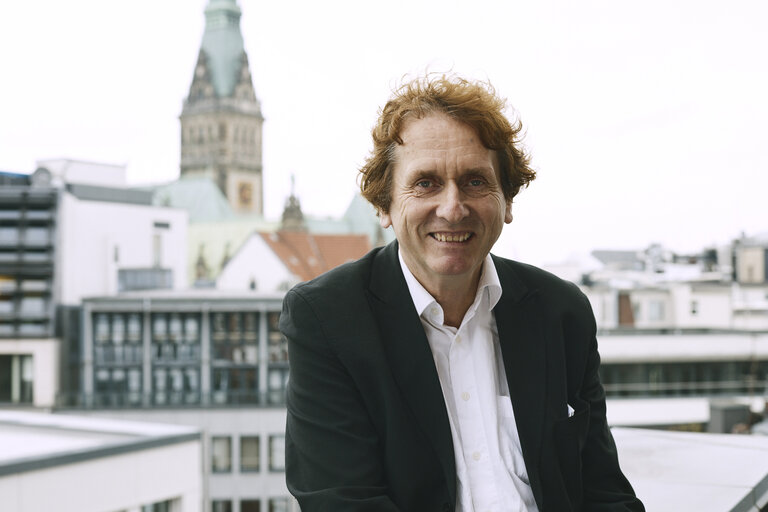Chemist, environmental activist and economic visionary: Professor Dr. Michael Braungart received the German Sustainability Award for his exceptional commitment to environmental and climate protection. For decades, the eco-pioneer has been advocating a move away from linear business practices in favor of a systematic circular economy. His vision of a world without waste, in which all materials circulate in never-ending cycles, is based on the Cradle to Cradle design principle that he co-developed. To make this vision a reality, he established the Hamburg-based environmental research and consultancy institute EPEA, which to date has optimized more than 10,000 products in terms of their recyclability and material health and certified many of them.
‘Michael Braungart is now considered to be the most consistent and contentious advocate of an all-embracing circular economy. Cradle to Cradle is making its way around the world as a principle and as a label,’ emphasized the German Sustainability Award jury in its commendation. The path to becoming a progressive thinker began for Michael Braungart long before that, in the Jagst Valley in the Swabia-Hohenlohe region of Germany. With a close connection to the environment from an early age, he became involved in the anti-nuclear movement as a youth, was involved in founding the predecessor to the Green Party, and was active in Greenpeace in the 1980s.
In the 1990s, Michael Braungart developed the Cradle to Cradle design principle together with the US American scientist William McDonough. Since then, the graduate chemist and process engineer has campaigned unceasingly for a world without waste. ‘Being useful instead of less bad’ is one of the propositions that the 66-year-old espouses: ‘We understand environmental protection to mean that we destroy less: driving our cars less, producing less trash, using less water. But that is not enough. To protect the environment and climate effectively, we need to re-do things from scratch. We need to reach the point where absolutely all the components in a product can be recycled endlessly, and without any loss of quality,’ explains Professor Braungart.
With the aim of developing practical solutions to environmental problems and to promote the use of the Cradle to Cradle design principle in the economy, Michael Braungart founded the environmental research and consultancy institute EPEA in 1987. The institute has been part of the Drees & Sommer Group since 2019, a company specializing in construction and real estate. EPEA advises clients from a wide range of industries on recyclable products: from toy manufacturers to textile producers and automotive companies, through the construction industry. ‘The building sector in particular has an enormous appetite for resources. In Germany, it uses up around half of all raw materials. Most of this material ends up in landfills when demolished, or is downcycled into low-grade filling material,’ says Dr. Peter Mösle, Partner at Drees & Sommer SE und Managing Director at EPEA GmbH. ‘We designed buildings such as OWP12 in Stuttgart or The Cradle in Düsseldorf to be recyclable, so that we can preserve valuable materials for the future. Without Michael Braungart's groundwork, this would not be possible at this time. He has made a tremendous contribution to positively shaping the future through his C2C approach, and we are proud to work with him.’
Dr. Michael Braungart currently teaches eco-design and Cradle to Cradle at Leuphana University in the German city of Lüneburg. He is also co-founder and scientific director of the Hamburg Environmental Institute, and author of several books on the circular economy and the Cradle to Cradle concept.
The festive 15th anniversary of the German Sustainability Award with around 1,000 guests and 100 media representatives will be opened this year by German Chancellor Olaf Scholz. In addition to Michael Braungart, other award winners this year include Prince Albert II of Monaco, singer and songwriter Michael Patrick Kelly, french singer Zaz and top model and donor Toni Garrn.
